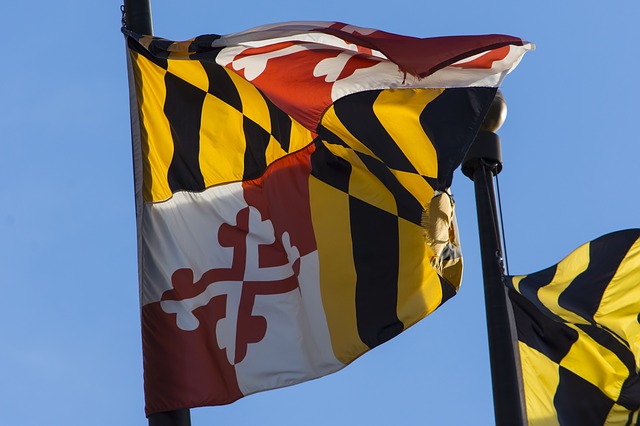@BryanRenbaum
Maryland is included among the top ten states with the strongest economies in the nation, according to a recent study.
The WalletHub study was released on Monday. It said that Maryland’s economy is the 7th best in the nation. Utah ranked first. Hawaii ranked last. President Joe Biden won 8 out 10 of the states that were ranked in the top tier. Besides Maryland, those states include: Washington, California, Massachusetts, Colorado, Oregon, Georgia, and Arizona. The latter two states used to be considered solidly Republican.
The study based its findings on three criteria: “economic activity, economic health, and innovation potential.” The criteria were assessed across 29 different metrics. Each metric was ranked on a scale of 0-100 points. WalletHub used data compiled by U.S. government agencies such as the Census Bureau, Bureau of Labor Statistics, and the Bureau of Economic Analysis.
So why is Maryland’s economy doing better than that of most states even with an unemployment rate that is slightly higher than the national average? And does politics have anything to do with it?
“The states listed with the strongest economies are either largely independent of external economic forces or dependent on government spending (military or civilian). In point of fact, these were essentially the same states listed as having strong and resilient economies pre-COVID,” Frederick County Chamber of Commerce President and CEO Rick Weldon told MarylandReporter.com.
Weldon attributed Maryland’s top-tier rank to the high concentration of federal jobs in the state.
“I think you have to accept the fact that we rely so heavily on federal spending (federal civilian or contract payrolls), and that those white-collar payrolls were supported throughout the pandemic.
“The problem came at the lower wage rates, with retail workers, hospitality and bars and restaurants staff. Those are the same job categories that continue to struggle with staffing. Our tech sector economy, healthcare, robotics, life sciences, and information technology remain profitable and solid.”
Howard County Chamber of Commerce President and CEO Leonardo McClarty said that while the state’s hospitality industry is still experiencing a labor shortage that overall economic prospects look bright.
“While there are a number of Marylanders out of work primarily in the hospitality and restaurant sectors, we picked up jobs from the previous month and showed growth in professional and business services. Moreover, our job growth is headed in the right direction.”
McClarty noted that Maryland’s economic strength comes primarily from federal jobs and both medical and technological innovation.
“It also helps that our economy depends heavily on the federal government which often protects us. Equally as important is that the criteria here factors in innovation where we are very strong and can compete with the best of them.”
As for political policies, the effect that they have on the economy is often exaggerated, McClarty said.
“More often than not, Sun Belt states rank high for low taxes and favorable labor policies and those states tend to be more Republican-leaning. Ultimately, I believe we give Presidents too much credit when things are going well and too much blame when they are bad.”
Washington County Chamber of Commerce President and CEO Paul Frey largely agreed, saying that markets eventually adjust to whatever political policies are implemented.
“The private sector wants certainty. And during presidential elections, there is uncertainty. Once election results are finalized the business environment begins to stabilize. While some business owners may not like any given year’s presidential election results, no matter which party they support, once the results are in they can adjust to whoever is in the White House, including the policies that are then implemented.”
However, Frey did say that markets tend to work best when the government is least involved.
“The key to prosperity in a free-market economy is for government to avoid enacting unnecessary regulations in the market or workplace…It’s in the best interest for businesses to create an excellent work environment and still maintain profitability.”




Recent Comments